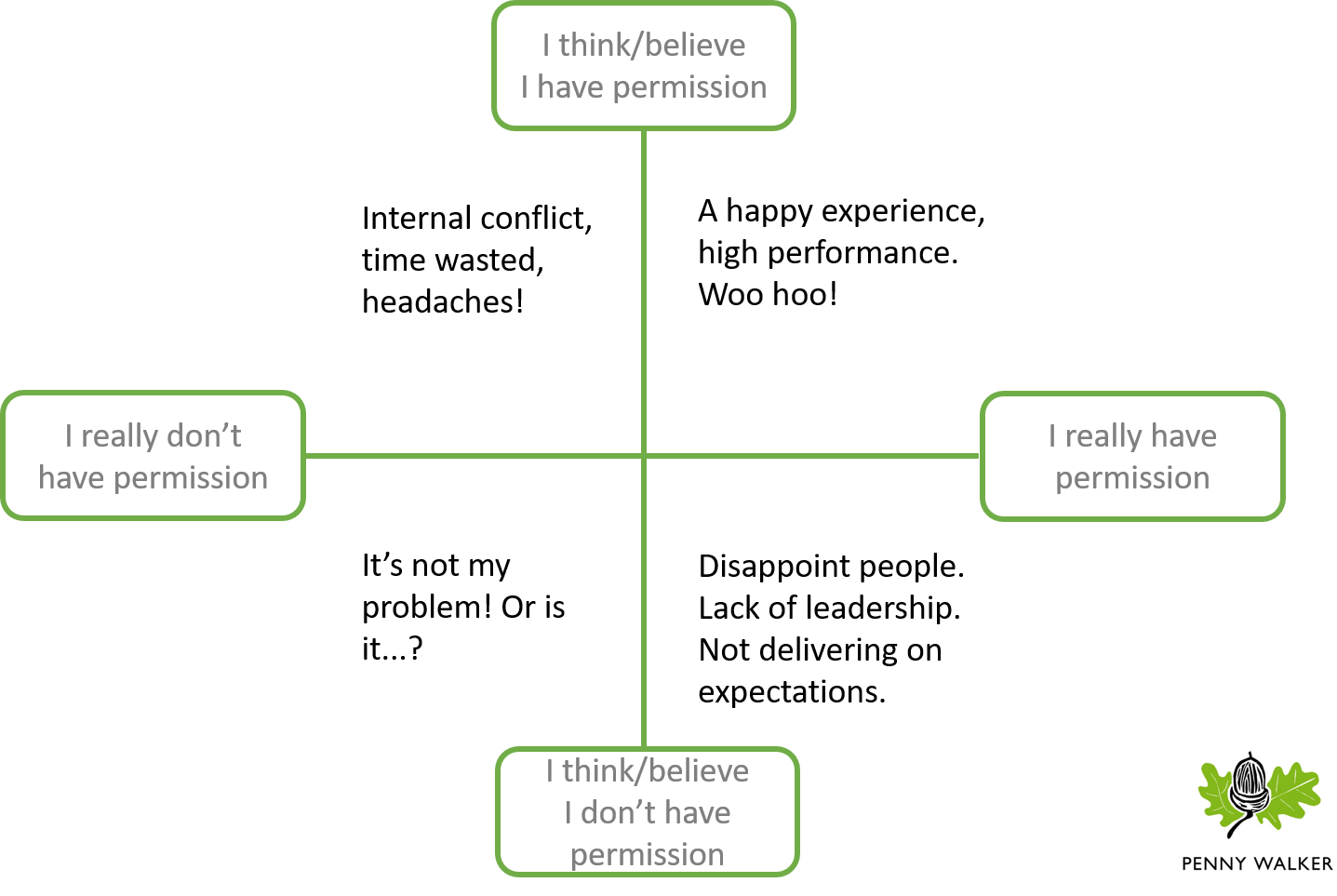In a recent coaching session, my client was exploring whether they had permission to do something. And, in an uncertain and fluid situation, how they would know whether they had permission or not. What if they misread the signs?
We developed a two-by-two matrix, to sort out the possibilities.
Permission 1
If you realise that you have permission to do something, then that's the best place to be: empowered, confident in your mandate, and able to forge ahead. If you have permission but don't realise - or don't believe - that you have, you can disappoint the people who are expecting you to show leadership. If you think you have permission, but others don't agree, then conflict can arise. You waste your time and in this client's words, it's a right headache. And if you rightly believe that you don't have permission, then you can at least recognise that it's not your problem. Unless you wish you did have permission!
Permission 2
We also looked at what the implications are if you like or don't like the amount of permission you have. If you have permission, but wish you didn't, then you need to ask yourself whether you have permission to say no! If you wish you had permission to do something which others haven't given yet, then you have an engagement and advocacy pathway in front of you, to get the permission you want.
Who gives us permission?
Sometimes there really is a person or institution with power which formally and explicitly gives or withholds permission. But so often, all of this is happening in our heads. Who is the real person whose views we are assuming we know? Can we replace our assumption with some actual conversation? They may surprise us!
Who is the imagined person we are waiting to hear from? It may be a voice we have carried with us from our earliest childhood, which we can experiment with ignoring or challenging. We can give it new things to say.
And if the 'permission' feels significant but we don't know where we stand, we can play with scenarios to find a way forward in the face of uncertainty.



